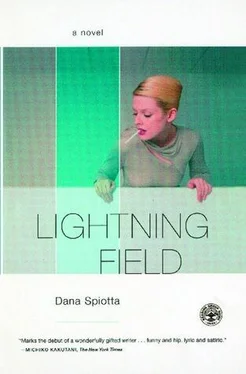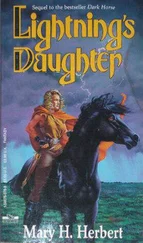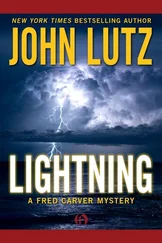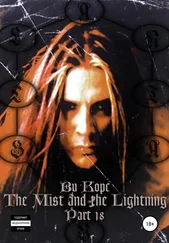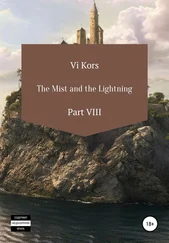“You have the most beautiful skin,” Jay said.
“Such soft hair,” Emmy said.
“Wait until you see this,” and she held still as he used small wet cold brushes that felt like a tiny tongue on her eyelid. It made her shudder. Jay smiled at her.
“Edie Sedgwick or Audrey Hepburn?”
“Rita Hayworth,” she said, and they laughed at her, and powdered her and turned her finally to look in the mirror, and there she was, pixie woman-sex-child, and she could not stop staring, so mysterious she seemed. It was a heavy movie star look, but an accent here and a smoothness there and a slight artifice about the eyes that gave her a deliberate sexiness made her suddenly dangerous. “Wow,” she said, and it changed the way she moved. She wandered about the set staring at people, anxious to be seen. It was this enjoyment of attention that worried her later when the incident with Dennis happened, and in her mind the makeup day and the incident were conflated, though she was aware that they very well might have occurred months apart, but memory had conflated them to make a logical narrative, to make a causal relation in which she could find some coherence. She felt the strain of trying to remember things as they actually were, the precise chronology, but it washopeless, gone in a veil of wishes and regrets. How particularly when someone was ill, like her brother, the chain of your memories of that person alters irrevocably. His illness became like her own personal Hays office, erasing the offense and the disquiet from all her brother memories. There were, however, the seams of the edits, the wafting hints of darkness she had forgotten. How this kind of remembering was like insanity, and the way later disturbances threw off all the pleasant dreams of her brother. They must be there, the indications, the evidence. And so she would remember things, incidents to make the present presentable and understandable. She knew the incident with Dennis was colored like the memories of her father and her brother, it was colored by her no longer being able to believe in her own innocence, or any innocence at all, even though she also knew that reality was much more complex than innocence and culpability, cause and effect, truth and lies.
I wake in the hotel room. Lorene is out. Sitting in some cafe, no doubt, transforming into some kind of voodoo priestess. She doesn’t want to leave. She says she wants to be in a place that respects decay. I still have to go to my mother’s. I can’t sleep. I watch TV.
John Ireland is in a gray-checkered suit, talking in a journalist weary sexy voice.
“Now you have a secret, too” is what Dennis had said.
But I didn’t want a secret.
It was not Thanksgiving, but the week after. My body confirmed what I suspected all along: it was against me, an enemy. It was not pliant, it wanted things, it grew things.
Dennis had touched me because I had wanted him, too. I made him. He hesitated and I pushed him.
You could just undress like you did before. If you want.
Oh, I want, all right.
It wasn’t Thanksgiving, but the week after.
He looked at me, OK? And no one seemed to see me at all. I felt for the first time electric and possible.
“She’ll never be the beauty her mother was,” my father had said.
“Everyone has secrets, people aren’t what they seem.”
“It’s a surveillance site. For videotapes.”
I felt my beauty upon me when men looked at me, it radiated out, electric, and illuminated the world.
My body had been doing strange things. Unfamiliar things.
“Your father,” he said, “your mother.”
You can count on it. You absolutely can.
John Ireland was married to Joanne Dru. In real life. I know this.
Every desire contains its counterdesire. It’s already there, embedded.
How did — David had bruises on his hand.
He said, with absolute confidence, “You’ll get over this.”
It wasn’t Thanksgiving, but the week after.
I wanted to get the thing over with, get it out of my body. Michael came home, to be there, the week after Thanksgiving. Left school and came home to me. Just like that.
He zipped up his pants. He didn’t look at me in the same way.
Scott cried. It wasn’t a movie to him, was it?
Michael took me to the clinic. They wouldn’t let you do it unless you had someone to drive you home.
“What’s up?” Michael said. “I hear this rumor you don’t eat or speak anymore.”
“No comment,” I said.
When you ignore me I feel as though I don’t exist.
“Just sit tight. I’ll be there tonight.”
“No, no, no,” I said. But he came anyway. Took me to the clinic and drove me home. He put me to bed.
Lied to the doctor about being eighteen.
“You’ll get over it,” the doctor said. I didn’t cry.
“Well?” Michael had asked, holding my hand while I lay in bed. I was groggy. What did I say to him?
“It’s obvious, isn’t it? I’ve ruined my life.”
He said, Michael said, he looked at me and I remember what he said, “Nothing lasts, it doesn’t. I promise.”
“Is that a comfort or a threat?”
“The world is full of second and third and fourth chances.”
“What?” I said.
“Go to sleep,” he said. “I’ll take care of you.”
‘What?” I said.
“Go to sleep.”
“You’ve changed, Michael, I hate it.”
“Yeah? I haven’t. You’re just getting older. You’re just growing up. You’re the one who’s changed.”
John Ireland’s voice. It reminds me of my father.
The Morning of the Day They Leave
Lisa is cleaning Lorene’s house when Lorene makes her an offer. She shows Lisa her alarm system. She gives her space in the closet. They set up the guest room for the twins. Lorene feels exuberant doing this, letting Lisa stay in her house. She was going to be gone for a month or so, and maybe by then Lisa’s husband will have come back. Anyway, Lisa would enjoy it more than she did.
When Mina woke on her last day, she spent a minute staring at her husband. It was not even six o’clock. She couldn’t wake him. It was overly dramatic to leave him a note. Besides, she didn’t want to explain anything. She was so weary of trying to explain things. She sensed vaguely that she might regret that, and she started to walk to Lorene’s apartment.
The walk up Franklin facing the Hollywood Hills was eerie and quiet this early. There were hot, dry blasts of wind, the latesummer Santa Anas that made the city feel strange. Hot paradoxical winds — winds that made you sweat. Mina felt the sirocco blast of air, an undercurrent of desert. Perfect weather for an exit. The air felt heavy and pushy, hot, sudden northern blows that Raymond Chandler called red winds. Well, he ought to know, and it felt that way, red and hot and skewed, as if it might blow the pages of a calender back, the introduction of a flashback, an incantation to time slips. Mina stood at Hollywood and Franklin and looked back down, listening to tiny pieces of paper swirling in the street. The dawn light deflected and diffused, a fighting orange, a growing umbery red. The wind was red because you could feel the tabloid bloodrush ofthe city in it, a cracked Southern California creepiness that came from desert and sun and all its golden promise. You could feel Manson at the edges, and fires and riots combusting from within, and the funny way the city always seemed primed for retribution.
Mina walked on, regarding the mock paradise. Sure, verbena and maidenhair and palm fronds, but, hey, also a Lysol alley starlet with a venereal disease, a serial killer with a keen sense of irony, a movie actor twitching on the ground while everyone watched, and the ghoulish glee of teenagers getting stoned at the alley where Sal Mineo was stabbed, or at Marilyn’s crypt. There was no cliché that this place wearied of, nothing so shopworn and spent that it couldn’t be revived with the right recasting, the right lighting, and the right framing.
Читать дальше
